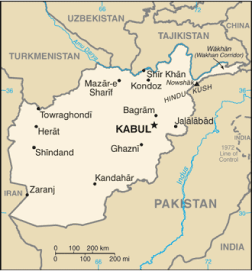 There’s been a lot of buzz around the internet following the not-yet-materialized threat by News. Corp.’s leader Rupert Murdoch to pull the listings of his companies’ publications from Google’s index – possibly with Microsoft’s (Bing’s) help/monetary support.
There’s been a lot of buzz around the internet following the not-yet-materialized threat by News. Corp.’s leader Rupert Murdoch to pull the listings of his companies’ publications from Google’s index – possibly with Microsoft’s (Bing’s) help/monetary support.
Since Murdoch’s publications include the Wall Street Journal, this shot across Google’s bow has launched a thousand blog entries (1,001 with this one…).
However, some of the mainstream articles take off in wild directions based upon this single shot.
Danny Lyons writes about this in the Dec. 7, 2009, print publication of Newsweek (available online Nov. 29). Lyons takes the argument (Murdoch vs. Google) to the next (demented) step: It’s really a battle between Microsoft and Google.
Huh?
Basically, Lyons argues MS is willing to pay Murdoch for linking to News Corp. articles so Google can’t. I don’t buy that (sure, that’s a bonus…), but whatever.
Lyons ends his article with this observation:
The sad truth is that Google and Microsoft care less about making cool products than they do about hurting each other. Their fighting has little to do with helping customers and a lot to do with helping themselves to a bigger slice of the money we all spend to buy computers and surf the Internet. Microsoft wants to ruin Google’s search business. Google wants to ruin Microsoft’s OS business. At the end of the day, they both seem like overgrown nerdy schoolboys fighting over each other’s toys.
— Google This!
Oh, there is just so much wrong with this little paragraph:
“The sad truth is that Google and Microsoft care less about making cool products than they do about hurting each other.” While there is certainly some truth to this statement, which of the two companies allows engineers 20% of their work week to work on whatever the hell they want to work on? You know, to try to create cool, sexy stuff? And while it doesn’t always work out – Google Labs is like Source Forge (but on steriods) – a lot of projects that will never get to a full release version. But Google’s had great success with this: The “20% time” projects have given birth to Gmail, Google Maps and Orkut, among others. The first two have revolutionized their respective niches (browser-based email; online maps) and the latter, while a failure in the US, is huge in South America, especially in Brazil, that continent’s most populous and fastest-growing country. Pretty “cool,” hmm?
“Their fighting has little to do with helping customers and a lot to do with helping themselves to a bigger slice of the money we all spend to buy computers and surf the Internet.” The last part of the sentence is course absolutely true. The internet’s getting more and more omnipotent and a conduit for commerce every day in so many ways. The bigger piece of the internet pie, the bigger revenues. Absolutely. And both Microsoft and Google are huge players in this pie grab, fighting for every sliver of this new marketplace. But – if you’re going to try to grab more pie – you have to help the people who are surfing the web: the customers. That’s what Microsoft is trying to do with Windows Mobile (smartphone OS) and Google’s trying to do with the various products it creates and give away: Capture customers and, in turn, capture revenue. Look at the old Napster: Yep, pirated music. People said once we had it free, we’d never go back. Steve Jobs and iTunes proved that wrong. Make it drop-dead simple, and people will use it – and you’ll profit.
“Microsoft wants to ruin Google’s search business. Google wants to ruin Microsoft’s OS business.” I think the first sentence is true: Google is (currently) primarily an advertising company, and search is the tool of choice. If Google search went dark tomorrow and stayed that way, the company would collapse. No question. Yet Google has a huge hunk of online search, and Microsoft covets it. Absolutely. But “Google want to ruin Microsoft’s OS business”? Nah. To me, Google’s not looking at Microsoft: It’s looking at the future. And the future is online, not the desktop. So Google’s doing everything it can to get – and keep – people online, and to make the customer experience online as positive as possible. Hence Google Docs, for example: Enable users to put documents in the cloud, where they can work on them everywhere – no thumb drives required; no syncing. Ditto for Gmail. Keep people online; keep them in apps that’ll serve up ads. This hurts Microsoft, to be sure – undermines the cash cows Office and Windows. But – in my mind – to me this is not Google trying to “ruin Microsoft’s OS business” as it is positioning itself for the future, which is not on the desktop. If it hurts Microsoft, that’s just gravy.
RE: The final point, I’d say that Google’s ChromeOS looks like Google taking direct aim at Microsoft – in particular, the incredibly profitable Windows franchise – but, again, I think this is just Google looking to the future. This OS will boot incredibly quickly and will only access the cloud – but it’ll be optimized to take advantage of the cloud offerings better than any browser (including Google’s confusingly named Chrome browser) on any platform.
It’s a way to let people inexpensively (it’ll just be for cheap netbooks initially) access, work in, stay in the cloud. And while they’re there – checking Gmail or Google Maps or whatever – they’ll be served up ads by Google.
Ka-ching!
Update: Scoble gets it.


 Twenty years ago, the
Twenty years ago, the  Bottle Shock
Bottle Shock